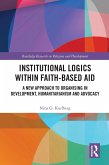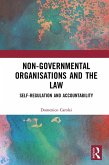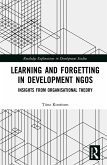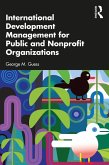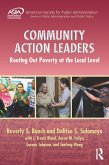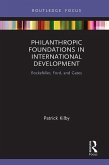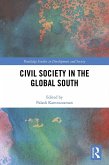Dieser Download kann aus rechtlichen Gründen nur mit Rechnungsadresse in A, B, BG, CY, CZ, D, DK, EW, E, FIN, F, GR, HR, H, IRL, I, LT, L, LR, M, NL, PL, P, R, S, SLO, SK ausgeliefert werden.
Emma Tomalin, Professor of Religion and Public Life, University of Leeds
"A valuable analysis of faith-based organisations that takes seriously the complex space between individual and collective identities. Nina Kurlberg carefully explores how religion is embedded in the institutional logics that frame aid and development work across the world today."
Mathew Guest, Professor in the Sociology of Religion, Durham University
"Nina Kurlberg's book is a must-read for those interested in faith-based organisations (FBOs), offering a compelling and nuanced examination of their practice. By introducing a new perspective and developing an analytical tool based on it, Kurlberg provides a valuable framework for future studies in this field."
Gry Espedal, Theologian and Associate Professor at VID specialized University, Oslo, Norway



